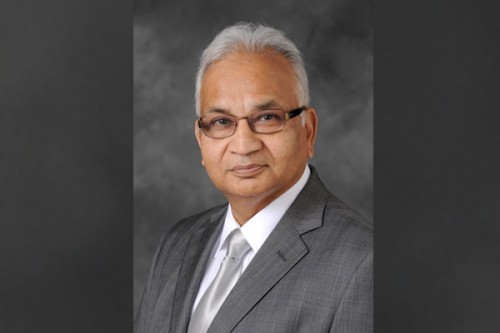Robotic surgery in India gains footprint, cost bound to go down: Indian-origin evangelist

New Delhi, Sep 6 (IANS) As the Indian healthcare sector embraces robotics surgery in a big way, the availability of a variety of surgical robots from multiple vendors and an increasing number of trained doctors and commitment to investing in surgical robots by government and corporate hospitals are increasing its footprint across the country, says Dr Mahendra Bhandari, CEO of US-based Vattikuti Foundation and a robotic surgery evangelist.
Nearly 20 years after Escorts Heart Institute (now known as Fortis Escorts Heart Institute), a Delhi-based hospital, ushered in a pathbreaking procedure that employed robotic assistance for complex heart surgery, robotic surgery has not only increased its footprint manifold but also promises to grow at a rapid pace.
“Surgical robots are now being applied to newer medical specialties like joint replacement and heart conditions like the coronary artery bypass grafting,” Dr Bhandari told IANS.
Over 110,000 robot assisted surgeries have been performed in the country in the last 15 years, as per industry estimates.
The first joint replacement robot, Mako, in use at Amrita Hospital in Kochi since 2017, now has 20 installations across the country with over 80 experienced orthopaedic surgeons trained and certified to handle joint replacement surgeries.
Some of the large hospital chains with a ‘Mako’ robot include Max Hospital, Saket, New Delhi, Apollo Indraprastha Hospital in Delhi. It has been used for over 10,000 joint replacement procedures in India to date.
Dr Bhandari said that Vattikuti Foundation’s effort in preparing a vast a pool of surgeons over the last 10 years has given him satisfaction that “each one of the 100-plus hospitals performing robotic surgeries in India has either a robotic surgeon, mentor or a Vattikuti Fellow trained by the Foundation”.
Globally, the surgical robot market is expected to reach $30.7 billion by 2030, according to data analytics firm GlobalData.
Responding to the high cost associated with robotic surgeries in India, Dr Bhandari said that with the availability of robots from at least half a dozen manufacturers the cost of surgeries is bound to go down.
“The new training facility at AIIMS will serve as yet another beacon of progress by providing robotic surgery skills to hundreds of surgeons who can deliver better outcomes to patients by increasing access to high-quality medical care and reducing costs,” he told IANS.
Shorter hospital stays for patients because of robotic surgery will make healthcare facilities accessible to more patients needing life-saving surgery and organ transplant.
The Vattikuti Foundation has trained over 500 super-specialist surgeons from all specialties to become accomplished robotic surgeons India in the last decade.
“State governments are acquiring state-of-the-art robotic surgery technology demonstrating their commitment to innovation. States like Telangana have in place a robotic policy framework with healthcare as one prime sector for the government in promoting robotic technology,” Dr Bhandari mentioned.
Encouragingly, more major health insurers now reimburse additional expenses for robotic surgery in the country as they believe that it delivers better outcomes and shorter hospital stays, another reason that could add to the growth of this form of surgery in India, he mentioned.
As robot-assisted surgeries gain traction in the Indian healthcare industry, the Vattikuti Foundation also announced its 2023 Fellowship programme for surgeons with super-specialist qualifications in the country.
The fellowships are available in surgical oncology, minimally invasive and robotic gynaecologic surgery, as well as different aspects of urologic robotic oncology.

|

|

